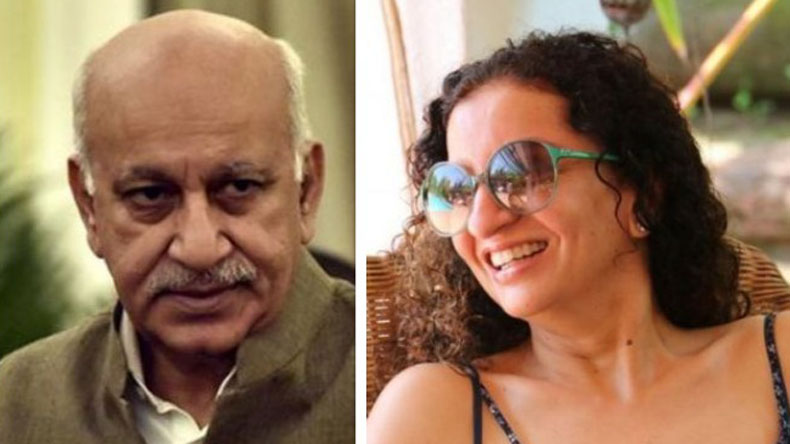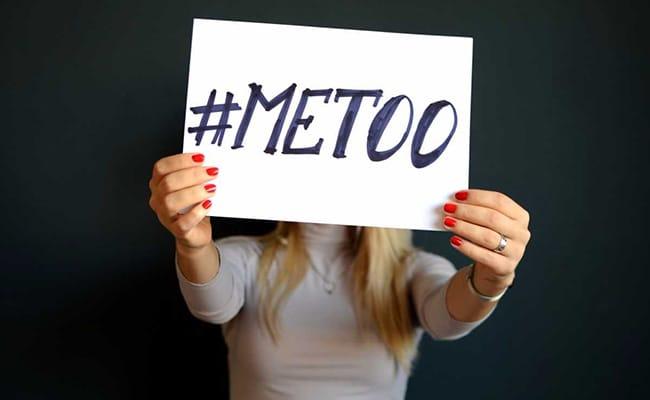Priya Ramani, a journalist, who came out first with her version, reproving MJ Akbar, the current minister of state for external affairs and a former journalist, of sexual harassment, has to now face a criminal defamation case. It is evident that MJ Akbar has been accused of his alleged involvement in sexual harassment of 14 women. Through Akbar’s advocates — Karanjawala and Co — the case has been filed in New Delhi’s Patiala House Court.
Akbar, in his complaint, has stated that Ramani has resorted to a series of spitefully made-up allegations. He also mentioned that she has been diabolically and brutishly spreading such rumors using media.

In the same approach, Alok Nath, a senior Bollywood actor, has denied Vinta’s accusations that he had sexually assaulted her. Ashu Singh, the wife of Alok Nath, has now approached the court against Vinta. It is worth recollecting that a few days ago, Vinta Nanda, a Bollywood writer cum producer, came out with a tear-jerking explanation of how 19 years ago she was allegedly assaulted sexually by Bollywood actor Alok Nath on more than one occasion. Later, actor Sandhya Mridul has also come out with her story of sexual harassment by Alok Nath.
In this row, author Chetan Bhagat has stated that Ira Trivedi’s allegations of sexual harassment against him were false. In order to defend his statement, he has posted a screenshot of 2013 email sent to him by Trivedi, on his twitter wall. Though he has not drawn near the court as of now, it is likely that he may also approach the court under defamation law.
It seems Newton’s third law — for every action, there is an equal and opposite reaction — holds good in the #MeToo row. Seemingly, all those men who have been exposed by the women in the #MeToo are in the mood of knocking the doors of the court. In this background, it is very much essential to appreciate what amounts to defamation and what does the defamation laws in India say.
In general, defamation is an oral or written statement that hurts someone’s reputation. According to Article 21 of the Constitution of the Republic of India, reputation is an essential and significant part of the dignity of the individual and Right to reputation. It is a natural right, which is an inherent right guaranteed under Article 21.
The Right to freedom of speech and expression guaranteed by Article 19(1)(a) of the Constitution of India is not complete for the reason that it has imposed reasonable restrictions for exercising rights in the interest of the security of the state, friendly relations with foreign states, public order, decency, morality, contempt of court, defamation. However, Defamation Laws protect an individual’s private interest and reputation.

In India, unlike in many foreign countries, defamation can be viewed as both civil offense as well as criminal offense. It may be defined as the writing, publication, and speaking of a false statement which causes injury to reputation and good name for private interest. The remedy for a civil defamation is covered under Law of Torts.
In civil defamation, a victim can move high court or subordinate courts for seeking damages in the form of monetary compensation from accused. Section 499 and 500 of the Indian Penal Code provides an opportunity for the victim to file a criminal case for defamation against the accused. Punishment for the convicted for criminal defamation is simple imprisonment which may extend to two years or fine or both. On the other hand, under the criminal law, defamation is non-cognizable and compoundable offense.
Defamation statement must be in a spoken or written or published or visible manner and must be false and injured directly or indirectly to the reputation of an individual or his family members or caste and lowers the moral of the victim and statement is unprivileged statements. Likewise, like any law has some precincts, the following Statements can’t be deliberated as defamation:
· Any truth statement made in public interest;
· Any opinion given by the public in respect of the conduct of a public servant in discharge of his functions, his character appears;
· Conduct of any person touching any public question;
· Publication of any proceedings of courts of justice including any trial of court and judgment.

There is no doubt that if there is any truth in the contentions of the #MeToo, the defamation cases may become annulled. Also, it would ultimately demonstrate the allegations thus made by the #MeToo campaigners.
-Dr. Suman Kumar Kastur













